by Rabbi Jeffrey Adler
Psalm 114 is the second listed in the special collection of Psalms known as “Hallel”, or, “praise”, psalms popularly and traditionally recited during the Jewish holiday cycle, most notably, at Passover. This one particularly relates specifically to Passover, that celebration so typical of the divine intervention throughout the history of Israel and so representative of God’s relentless commitment to His special and unique covenant with His people made through Abraham, Isaac, and Jacob and continued throughout posterity.
“B’tzet Yisrael mimitzrayim Beyt Yaakov meam loez…”, “When Israel came out of Egypt, Jacob’s house from a people foreign-speaking…”. Israel had fled to Egypt in the days of Jacob and Joseph to escape famine in Canaan, Joseph having been miraculously engineered by Adonai into the office of Pharaoh’s right-hand man and governor of the Egyptian empire, it looked like and was the best place for the continuation of the development of the covenantal people. Certainly, God Himself directed this step. But, in Adonai’s ultimate wisdom, He knew that as people became comfortable in the land of the Pharaohs, they might decide to permanently remain there. God was giving the Egyptians, and, through the hegemony and influence they exerted, all the surrounding peoples, the chance to see a witness to God’s character and power. But, Egypt was a short-term solution to a temporary situation; she was never the ultimate destiny for the Abrahamic people. In Genesis 15, Adonai had told Abraham that his descendants would be enslaved for 400 years. The term “loez”, “foreign- or strange- or unintelligible-speaking”, drives home the point that Israel did not fit in or belong there.
Instead, verse 2 states, “haytah Y’hudah l’kadsho Yisrael mamshlotav”, “Judah became His Sanctuary, Israel His dominion”. This reinforces a theme recurring throughout Scripture. Examples are: Acts 7:48- The Lord does not dwell in human-built temples. I Corinthians 6:19- Our bodies are a temple of the Ruach haKodesh. Though Israel would have a Mishkan, a Tabernacle, and, later, the Temple, the ultimate heritage of Israel, the Jewish people, would be Adonai Himself and His indwelling Presence, a foreshadowing of the New Birth through Yeshua HaMashiach so clearly proclaimed in the unfolding revelation of the Scriptures.
The result of this dramatic series of actions on the part of God that nature responds. “The sea saw and fled, the Jordan turned back. The mountains skipped like rams, the hills like lambs.” (verses 3-4). These refer to the parting of the Red Sea and the Jordan River, as well as the quaking of Sinai as Adonai descended and settled over it to meet Moses and the people. The Lord rules more than nations; He is Creator and Lord of all Creation!
Verse 7: “Miliphne Adon chuli aretz miliphne Eloha Yaakov,”, “Tremble, O earth, at the presence of the Lord, at the presence of the god of Jacob; (verse 8) “hahophki Hatzur agam-mayim challamish l’ma’yano-mayim”, “Who turned the rock into a pool of water, the flint into a spring of water,”. God went on to not only part the sea and the river and shake the mountains, but, in a practical way, transform dead rock into a source of living water. Since nature must respond to the presence and power of El Shaddai, so, Man is exhorted to “chuli”, the imperative of “Chul” or “Chil”, “twist or thrash about”, commonly translated “tremble”. The world cannot help but acknowledge the Person of Adonai and, in the language of Psalm 2, “His Anointed”. Philippians 2:5-11 tells us that one day, “every knee will bow and every tongue profess that Yeshua HaMashiach is Adonai to the glory of God the Father”. If nature does, and all Humanity will, let us get a headstart now!
Rabbi Jeffrey Adler is president of the Board of HaShomer and also Rabbi of Sha’arey Yeshua in Indianapolis, IN.
